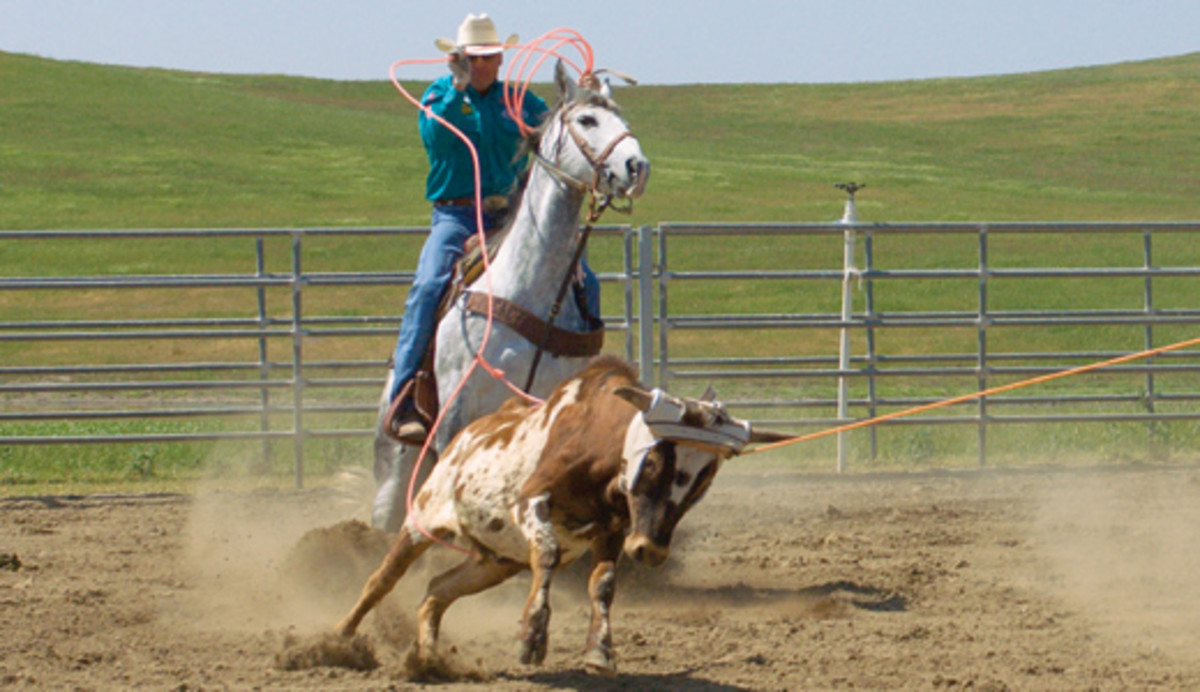Roping grabbed a hold of me when I was a little kid. My stepdad (Gene OBrien) was a jackpot roping arena operator in Southern California. So from an early age, since I was 5 or so, I thought the ropers who roped for a living and used to come around our arena from time to time were the guys. I would hear everybody talk about them and watch them rope. Guys like the Camarillos (brothers Leo and Jerold, and cousin Reg), Gary Mouw and Don Beasley were the big dogs back then, and I wanted to be just like them. Since I was a little bitty boy it was my dream to rope for a living.

I obviously started out jackpotting and junior rodeoing. Then when I got out of school I started amateur rodeoing. I went to college rodeos for a year. I progressed up through those stages of competition, and eventually back in my day the system basically forced you into pro rodeoing. They didn’t have any number systems then, and the jackpots wouldn’t let the open ropers rope, except for the few majors like the BFI, Riverside Rancheros, Oakdale 10-Steer, Chowchilla Stampede, and a few ropings in New Mexico, Texas and Arizona. Other than that, they just barred you from roping.

It was so engrained in me by then that roping was what I was going to do. The prospects of being a pro roper weren’t that great. There was no pot of gold at the end of the rainbow. It’s just that I craved and looked forward to the freedom and the lifestyle and doing something I absolutely loved. All I wanted to do every day was rope. To be able to make money at it was such a challenge. As a kid, the prospect of paying my bills with a rope was the coolest thing.

When Jake (Barnes) and I started roping together and started having success is about the time team roping exploded and took off. That brought with it the possibilities of making more money and getting endorsements. The rodeos were getting better along with the big ropings. My perspective changed about that time. I could have a family and support my family continuing on this career path. It was turning into more of a possibility than I had thought it could be. The doors started opening for me.

More avenues of income started opening up with roping schools, videos and sponsors. The exposure stepped up for all of us who rodeoed for a living. People started following us in publications, like Spin to Win and Ropers Sports News. We started having a fan base, and that opened more doors financially for guys like Jake and I, and other people who were winning championships when team roping exploded.

On the one hand, this has been such a wonderful life-such a great ride. Roping for a living is a lot of hard work. With that expansion in the popularity of team roping, so many more guys work at it and have gotten good. So winning becomes harder and harder, even for the very best guys. It’s more competitive all the time, so that adds even more excitement and challenge. Because it’s so tough, winning now is even more fun.

Roping for a living is definitely not for the faint hearted. No. 1, it takes a real deep love and desire for roping just from the aspect that it takes so much time and hard work to get as good as you need to be to be able to compete at the professional level. It is a 24-hour, 7-day-a-week job. If you love it, it doesn’t seem like work. The people who make it and excel at it are busy doing it 24-7. The stereotypical idea that we sleep ’til noon and don’t take care of our business just isn’t true. A few guys do that, but they don’t make any money at it. If they can afford to do that, somebody else is paying their bills for them. The top 15 guys who make a living at it work hard. They’re up early entering, taking care of things and practicing. They’re always doing something related to roping for a living. It’s all a matter of how badly you want to live the dream.










